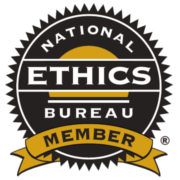SWITCHING JOBS DOESN’T MEAN LOSING YOUR 401(K)
One of the realities of working in today’s world is that most people will switch jobs. Not once, not twice, but multiple times.
Employees in past generations often found a job and stuck with it for decades, or even until they retired. That is not the case today. When it comes to job hopping, millennials often get a bad rap, but the numbers show that job-switching isn’t exclusive to younger generations. The Bureau of Labor Statistics reports that in their first 30 -plus years of adulthood, young baby boomers averaged 11.9 different jobs.
It’s truly a remarkable statistic. Between the ages of 18 and 50, that population had nearly 12 jobs. And while it’s difficult to imagine, you might be surprised if you do the math in your head. Think about where you’ve worked over the years. Some jobs may have been temporary; some may have been seasonal; and some, of course, were more permanent. Whatever the case may be, in the end, the average person does a lot of job switching over the years.
Every job is different, so it makes sense that the process when you leave every job is different, too.When we look back at Bureau of Labor Statistics’ study group of people who were born between 1957 and 1964, it’s unlikely that they had retirement savings plans at every one of their 11.9 (on average) jobs. But it’s less of a stretch to think that they might have a handful of retirement plans, like a 401(k).
What do you do when you leave a job with a retirement plan? Do you have options for your 401(k)? The good news is: you do.
For this article, we borrowed some inspiration from an April 2018 CNBC.com article entitled, “Here’s what to do with your 401(k) when you change jobs.” Handy, right? The article breaks down some of your options when changing jobs. It’s always good to consult with a financial services professional in a situation like this, too, but you shouldn’t feel like you’re alone.
Keep in mind that when you leave a job, your 401(k) is your money! Employers often have different vesting schedules for their contributions, but if you’ve contributed to a 401(k), you should keep in mind that it comes with you. Just like you wouldn’t leave your wallet at your old job, you may not want to leave your 401(k) there.
Your money should be working for you in the most productive way possible. With that in mind, let’s review your options.
- You can leave the money in your old 401(k) plan Most companies will allow you to leave your money where it is. There can be pros or cons to choosing this option. You might want to leave your 401(k) plan where it is if the plan has especially good investment options, low costs or contains company stock. Or, you may want to move it if you won’t have easy access to information once you’re outside the company, or having multiple 401(k) plans becomes difficult to manage.
- You can roll over your 401(k) to your new employer’s plan If your new company accepts rollovers, this could be a good option if the investment choices and fees match your goals and risk tolerance. If you aren’t happy with the investment options offered by the new plan, or the fees are too high, you have a third option.
- You can roll over your 401(k) to an individual retirement account (IRA) or Roth IRA If an IRA or Roth IRA has lower fees and more investment choices, you may want to consider rolling over your 401(k). With a traditional IRA, you contribute any pre- or post-tax dollars and let that money grow tax-deferred over time. You’ll pay taxes on any pre-tax contributions (and investment gains) only when you withdraw the money, which you can do starting at age 59 ½. If you withdraw before then, you’ll likely have to pay a penalty.While you have options when it comes to your 401(k), you should be sure to consider what’s off limits, too. For most people, that means not withdrawing the balance of your 401(k). Cashing out before age 59 ½ may lead to a 10 percent early withdrawal penalty. Plus, you’d be reducing your own retirement stash.
A financial professional will be able to walk you through more of the ramifications of an account withdrawal and other alternatives that could be less damaging to your retirement.

